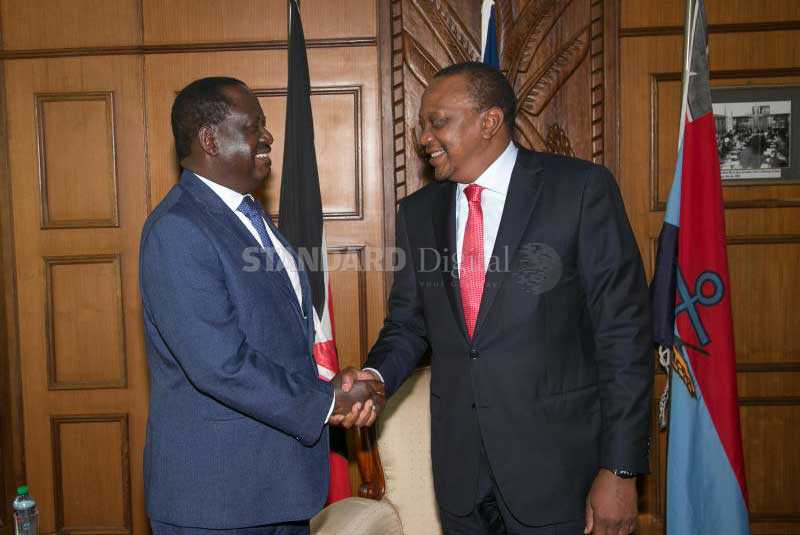×
The Standard e-Paper
Kenya’s Boldest Voice

President Uhuru Kenyatta has one less political battle to fight as he gets into his second and final term as Head of State following a public meeting with Opposition chief Raila Odinga.
Yesterday, the two men essentially agreed to give Kenyans a break from negative politics and pledged to engage in a more constructive and patriotic manner.